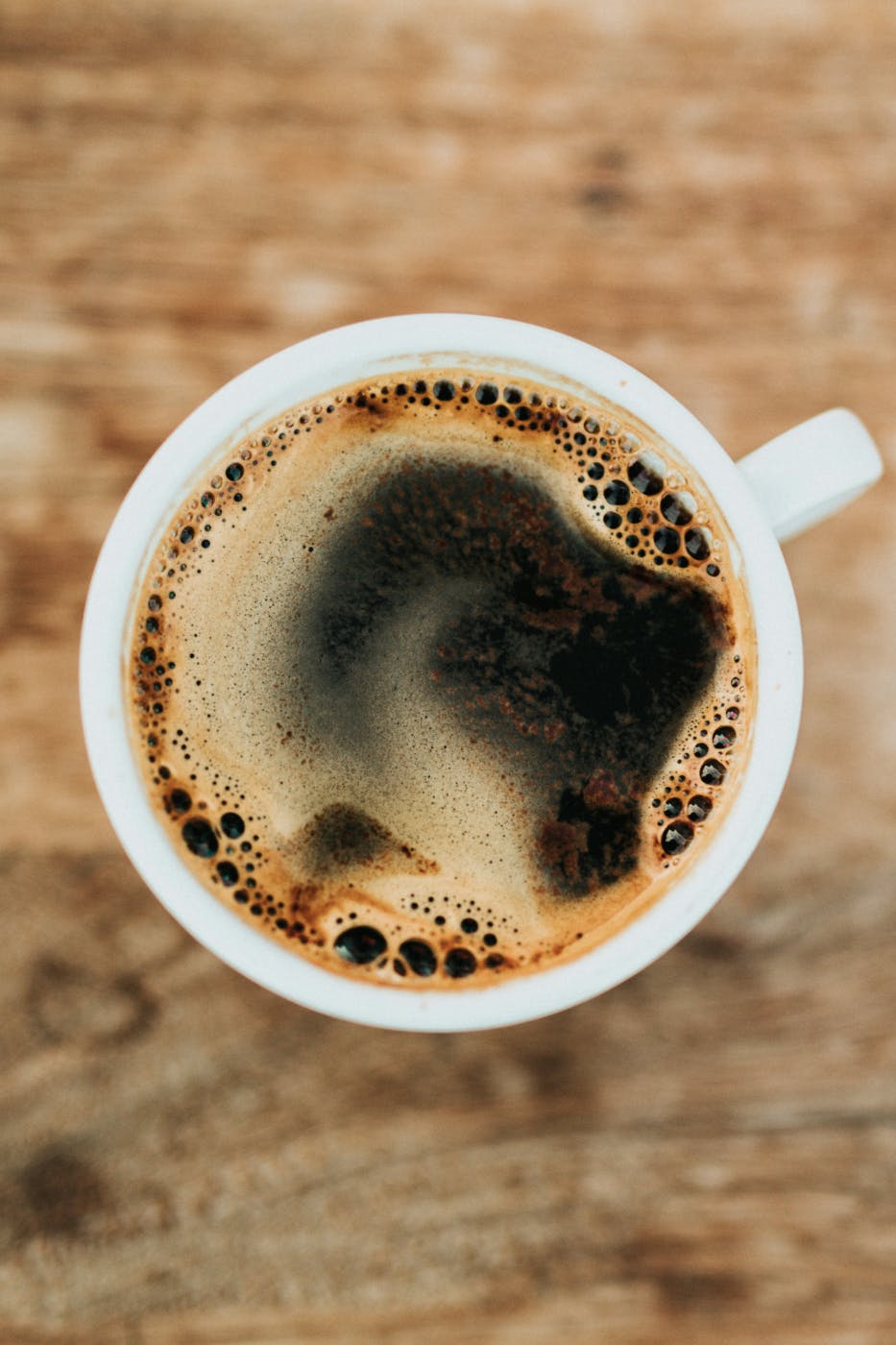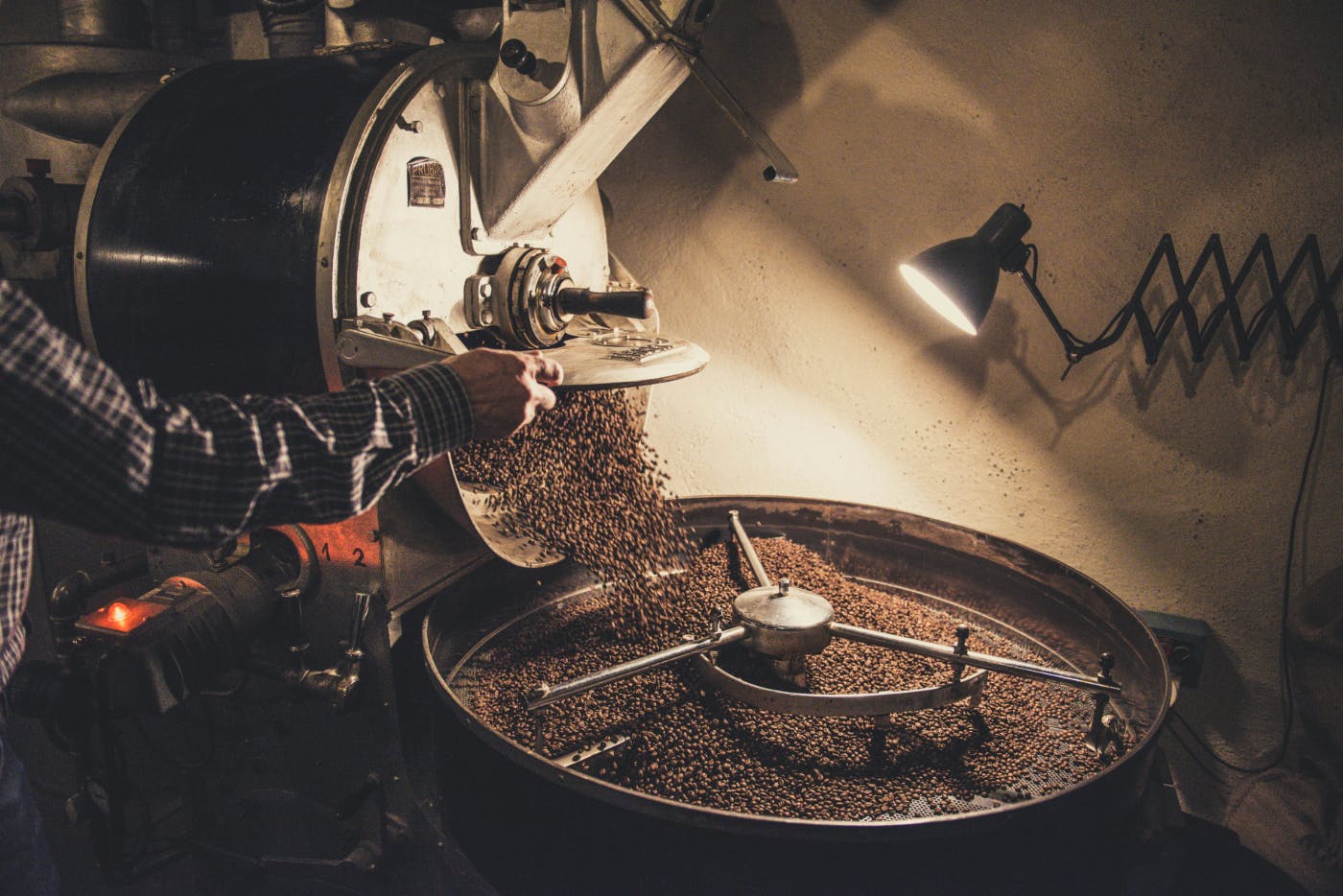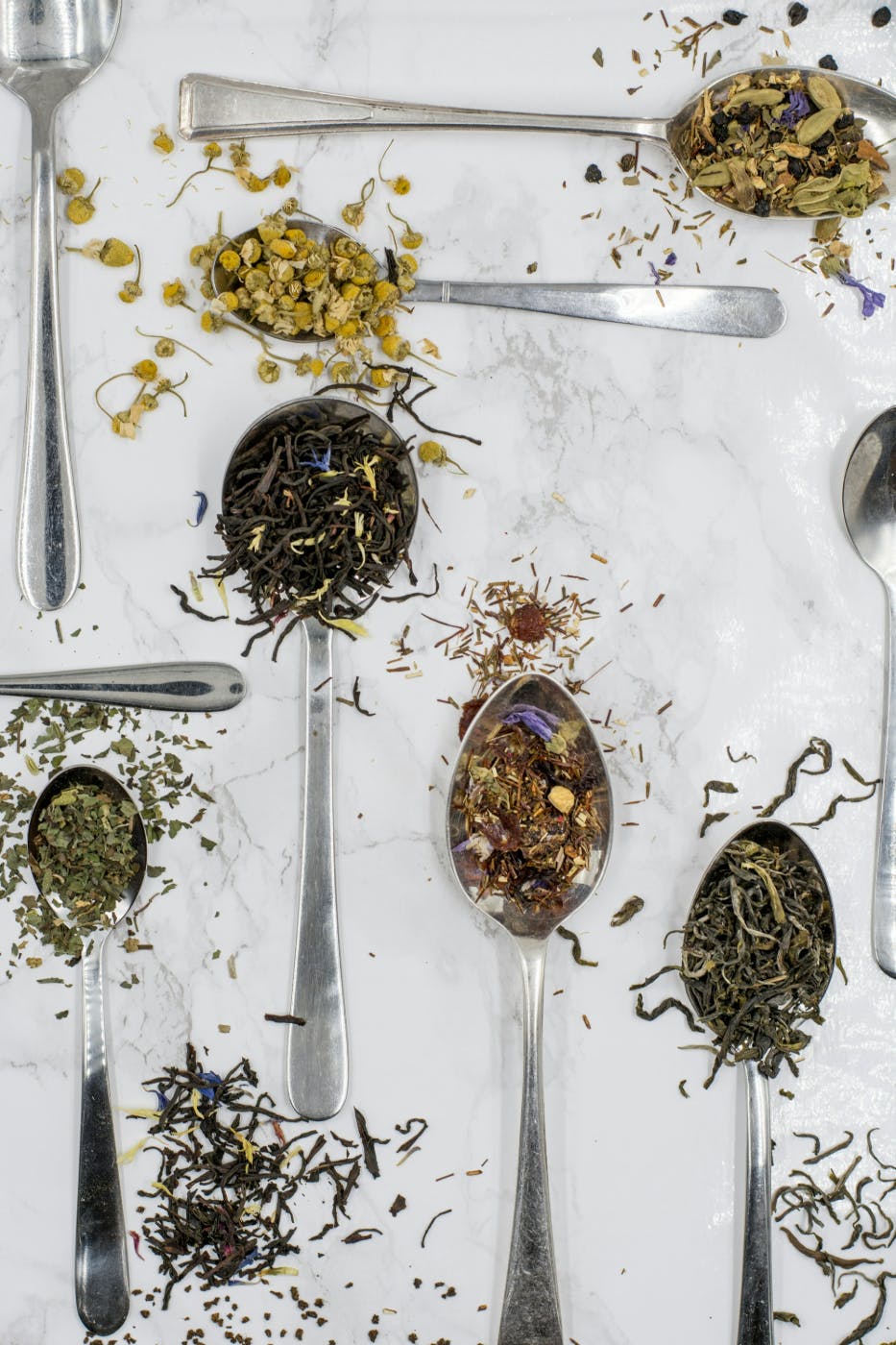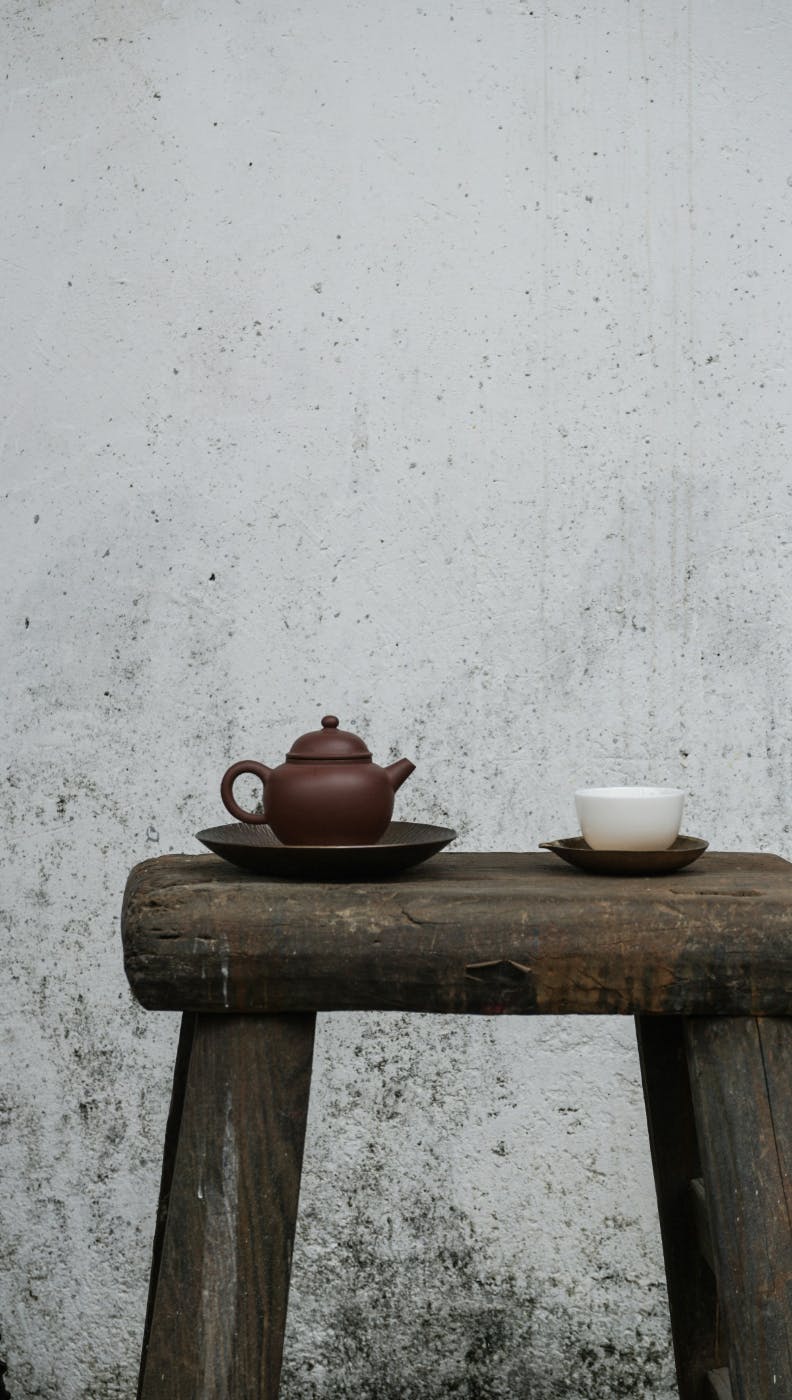
I’m a coffee drinker. I drink a lot of coffee. In fact, the last time I went to a doctor, he told me that my blood coffee level was off the charts and that it is illegal for me to walk the streets with so much coffee in me. I once had a dating service tell me that my ideal match was a cheese danish.
Introduction: Coffee vs. Tea in the Workplace
I’m a coffee drinker. I drink a lot of coffee. In fact, the last time I went to a doctor, he told me that my blood coffee level was off the charts and that it is illegal for me to walk the streets with so much coffee in me. I once had a dating service tell me that my ideal match was a cheese danish. I have singularly kept the coffee-producing countries employed in my lifetime. I love me some coffee.
When I had an office, I was the one who kept the coffee area clean and stocked. I recall coming back from vacation to find there was only decaf coffee. DECAF. What’s the point? Drinking decaf is like watching someone else drink a cup of coffee; you don’t get any of the goodies. On that day, a nice woman who works in accounting said, "I have some English breakfast tea. It’s very strong; you won't even know the difference." After I pulled myself off the floor and fully recovered from my laughing fit, I enumerated why tea, even a strong breakfast, was not like coffee at all. Remember, at this point, it was 8:30, and I hadn't had a cup of coffee. Needless to say, I was slightly irritable.
Tea is good. I like a good cuppa now and again, but tea is not coffee. NOT EVEN CLOSE. And so, for those who don’t understand the physical and psychological need for coffee, let’s compare the two and see who comes out on top.

Coffee Lovers: The Energized Go-Getters
Coffee enthusiasts embody the spirit of energized productivity in the office. They're the ones who kickstart their day with a bold brew, ready to seize opportunities and conquer challenges. This archetype is not just about caffeine addiction; it's a lifestyle choice fueled by the rich aroma and ritualistic pleasure of a morning coffee ritual.
In any workplace, you'll find the coffee aficionados who can discern the nuances between a single-origin pour-over and a meticulously brewed espresso shot. There's a humorous stereotype that follows them—the coffee snobs who turn up their noses at instant options and swear by artisanal roasts. While their commitment to quality can sometimes border on obsession, it's rooted in a genuine appreciation for the art of coffee-making and its role in enhancing productivity.
Recall that moment of disbelief upon returning from vacation when I found only decaf coffee stocked in the office pantry. It's akin to expecting a superhero to save the day without their powers—disappointing and utterly anticlimactic. Decaf, in the eyes of a true coffee lover, simply doesn't hit the mark. It lacks the kick, the boldness, and the unmistakable allure of a proper cup of joe. And it doesn’t leave me shaking like a heroin addict coming off a week-long high, so what’s the point?
Coffee's allure extends beyond its flavor; it's a cultural symbol of hustle and focus. In a bustling office environment, the convenience of instant coffee can't be ignored. It's the savior during hectic mornings when deadlines loom large and there's no time for a leisurely brew. Whether it's the robustness of a dark roast or the comforting warmth of a latte, coffee drinkers bring an undeniable energy to the workplace that sets the pace for the day ahead.
Tea Enthusiasts: The Methodical and Serene
Tea enthusiasts, on the other hand, approach their workday with a methodical and serene demeanor. They appreciate the ritual of brewing a perfect cup of tea, whether it's a calming green tea or a robust English breakfast blend. Unlike their coffee-loving counterparts, tea drinkers often savor the moment, taking time to steep their tea to perfection and enjoying the soothing aroma that fills their workspace.
In the office, you might find the tea aficionados who bring a touch of elegance to their desk with a teapot and a selection of loose-leaf teas. There's a certain artistry in their preparation—a delicate balance of temperature and steeping time that ensures each cup is a masterpiece of flavor and tranquility.
While coffee is often associated with a jolt of energy, tea provides a gentle boost without the abrupt spike and crash. It's the choice for those who value clarity of mind and a steady approach to their tasks. Even in a fast-paced office environment, tea pods or Keurig-style machines offer convenience without sacrificing the quality and meditative experience of a brewed cup.
Tea enthusiasts appreciate the variety and subtleties of tea flavors, from the floral notes of chamomile to the invigorating spice of chai. Their preference reflects a commitment to mindfulness and a desire to infuse calm into their workday, one soothing sip at a time.

Finding Balance: Embracing Diversity
In any workplace, the diversity of beverage preferences mirrors the diversity of work styles and personalities. Coffee and tea enthusiasts coexist, each bringing their unique flavor to the office dynamic. While coffee drinkers thrive on the boldness and energy of their favorite brew, tea enthusiasts find solace in the tranquility and mindfulness of tea rituals.
The history of coffee and tea in the workplace is a testament to their enduring appeal. Coffee has long been the go-to choice for fueling productivity, with its origins tracing back to the 15th century when it was first brewed in the Middle East. Its introduction to European cafes in the 17th century revolutionized social and business interactions, shaping the modern office culture we know today.
Tea, on the other hand, found its way into the workplace through British influence during the 17th and 18th centuries. Initially a luxury enjoyed by the elite, tea quickly became a staple in offices and homes alike, offering a moment of respite and rejuvenation amidst busy workdays.
Imagine the early days when coffee and tea drinkers may have engaged in rivalries, each passionately advocating for their beverage of choice as the superior fuel for productivity. Was there a silent nod of respect between the coffee enthusiast powering through a late-night deadline and the tea aficionado calmly preparing for an important meeting? Perhaps it was a beverage "OK corral," where preference fueled spirited debates and unexpected camaraderie.
This historical backdrop reminds us that beverage preferences are deeply rooted in culture and tradition, yet they evolve alongside workplace dynamics. Embracing this diversity fosters a more inclusive and supportive environment, where colleagues bond over shared coffee breaks or exchange tips on the best tea blends for relaxation.
The Rituals of Break Time: Coffee Breaks vs. Tea Time
In many workplaces, the concept of a "coffee break" or "tea time" goes beyond simply refueling with caffeine. It's a cherished ritual that offers employees a moment of respite and social interaction amidst their busy schedules.
Coffee Breaks: Coffee breaks are often associated with quick, energizing moments where colleagues gather around the coffee machine or espresso bar. These breaks serve as informal networking opportunities, where ideas are exchanged and relationships are built over a shared love for coffee. The aroma of freshly brewed coffee fills the air, signaling a brief pause before diving back into tasks with renewed vigor.
As someone who cherishes their coffee breaks, I've witnessed firsthand how these moments can spark creativity and camaraderie. There's something about the buzz of conversation and the rich aroma of coffee that invigorates both mind and spirit, making coffee breaks a highlight of the workday.
Tea Time: Tea time, influenced by British traditions, offers a more relaxed and contemplative break from work. It's a time to steep a favorite blend, whether it's calming chamomile or invigorating Earl Grey, and enjoy a quiet moment of reflection. Tea enthusiasts often take pride in their selection of teas and the art of brewing, transforming their desk into a serene oasis during breaks.
For tea drinkers, myself included, tea time is not just about consuming a beverage but embracing a ritual that promotes mindfulness and relaxation. It's a chance to step away from the hustle and bustle, sip on a warm cup of tea, and recharge before tackling the next challenge.
The Social Dynamics: The dynamics during coffee breaks and tea time reflect different aspects of workplace culture. Coffee breaks may be lively and energetic, fostering spontaneous conversations and collaborative brainstorming sessions. In contrast, tea time tends to be more tranquil, encouraging introspection and a slower pace of interaction.
Both coffee breaks and tea time play vital roles in nurturing a positive work environment. They provide opportunities for bonding among colleagues, fostering friendships that extend beyond the confines of work tasks. Whether you prefer the quick jolt of energy from a strong espresso or the soothing comfort of a herbal infusion, these breaks remind us that productivity thrives alongside moments of relaxation and connection.

The Elixir of Morning
Coffee, oh coffee—what a marvel you are! You possess the remarkable ability to inspire poetry and prose, to stir the soul with each aromatic swirl. Unlike tea, which gently whispers calm, you command attention from the first whiff to the final drop. It's in your essence that mornings find their melody, in your robust flavor that anticipation meets satisfaction. Allow me to indulge in an ode to that first cup, where every sip unfolds a symphony of awakening and possibility.
Ode to the First Cup: Anticipation and Satisfaction
Ah, the first cup of coffee— A ritual cherished and divine, Anticipation brews with each step, From bean to brew, the journey aligns.
In the quiet dawn, as sunlight peeks, I await your aromatic call, Rich, bold essence fills the air, Awakening senses, breaking the thrall.
From the first sip, warmth embraces, As caffeine whispers to the soul, Eyes open wide, mind sharpens, Ready to conquer, to reach the goal.
Oh, coffee, elixir of morning, You paint dawn with hues of delight, Each sip a symphony of flavor, Fueling dreams before first light.
In that quiet moment of solace, Amidst the hustle of the day, You accompany, faithful and true, Guiding through work's grand ballet.
So here's to you, first cup of coffee, Brewed with care, a morning friend, From the first pour to the last drop, You bring joy that knows no end.
Now, back to our regularly scheduled blog already in progress.
Cultural Impact: Coffee and Tea Across the Globe
The cultural significance of coffee and tea extends far beyond their roles as beverages; they are cultural ambassadors that bridge continents and traditions in the workplace.
Coffee: Coffee's journey from the Ethiopian highlands to bustling cafes in Europe and beyond is a testament to its global appeal. In workplaces worldwide, coffee serves as more than just a pick-me-up; it's a symbol of productivity and shared experiences. Whether it's a robust espresso in Italy, a sweetened café con leche in Spain, or a meticulously brewed pour-over in a trendy urban office, coffee reflects the unique flavors and rituals of each culture it touches.
Tea: Tea, with its origins in ancient China, has spread its calming influence across continents through trade routes and cultural exchanges. In workplaces, tea represents moments of tranquility and reflection amidst busy schedules. From the elaborate tea ceremonies of Japan to the comforting chai breaks in India and the traditional English tea time, tea embodies diverse traditions and rituals that promote well-being and community.
Bridging Cultures: In multicultural workplaces, coffee and tea serve as common ground where colleagues from different backgrounds come together. They facilitate conversations, forge connections, and celebrate diversity through shared breaks and informal gatherings. Whether it's discussing business strategies over espresso shots or exchanging cultural insights during a tea ceremony, these beverages foster understanding and camaraderie.
By embracing the cultural richness of coffee and tea in the workplace, organizations create inclusive environments that honor traditions while promoting collaboration and innovation. Each cup tells a story of heritage and history, blending flavors and customs to create a tapestry of global workplace culture.

Health Benefits: Fueling Wellness
Beyond their cultural and social roles, coffee and tea offer distinct health benefits that contribute to workplace wellness and productivity.
Coffee's Health Benefits: Coffee, known for its high caffeine content, provides an immediate boost in alertness and concentration. Studies suggest that moderate coffee consumption can enhance cognitive function, improve mood, and even boost metabolic rate. In the workplace, a well-timed coffee break can reinvigorate focus during long hours or late meetings, making it a valuable ally for productivity.
However, it's essential to balance consumption and avoid excessive intake, which can lead to jitteriness or disrupted sleep patterns. When enjoyed in moderation, coffee serves as a reliable source of energy and mental clarity throughout the workday.
Tea's Health Benefits: Tea offers a gentler alternative with its lower caffeine content and a diverse range of antioxidants and nutrients. Green tea, in particular, is celebrated for its potential health benefits, including improved heart health, reduced inflammation, and enhanced immune function. Herbal teas like chamomile and peppermint provide calming effects that promote relaxation and stress relief, ideal for maintaining a balanced mindset in high-pressure environments.
The ritual of brewing and savoring tea encourages mindfulness, allowing employees to pause, reflect, and recharge mentally. Whether it's a mid-afternoon tea break or a soothing cup before bed, tea supports overall well-being and contributes to a healthier workplace environment.
Promoting Workplace Wellness: Employers increasingly recognize the importance of promoting wellness initiatives in the workplace. By offering coffee and tea as part of employee benefits or wellness programs, organizations encourage healthy habits and create supportive environments for mental and physical well-being. These beverages not only satisfy individual preferences but also contribute to a positive work culture centered around health and productivity.
Fostering Creativity: The Creative Spark
Coffee and tea play pivotal roles in sparking creativity and innovation among employees, each offering unique benefits that inspire new ideas and solutions.
Coffee's Role in Creativity: For many, coffee serves as a catalyst for creative thinking. The caffeine in coffee stimulates the brain, enhancing cognitive function and improving focus. This heightened alertness can lead to increased productivity and innovative problem-solving. In brainstorming sessions or creative meetings, coffee breaks often provide the necessary jolt of energy to ignite inspiration and encourage out-of-the-box thinking.
The ritual of preparing and enjoying coffee can also be a creative process in itself, from experimenting with different brewing methods to exploring diverse coffee blends and flavors. As a result, coffee enthusiasts find avenues to express their creativity through sensory experiences and culinary exploration.
Tea's Influence on Innovation: Tea, with its calming properties and diverse flavors, fosters a different kind of creativity. The act of brewing and savoring tea promotes mindfulness and relaxation, creating a conducive environment for introspection and ideation. Herbal teas, in particular, are valued for their soothing effects that reduce stress and enhance mental clarity, allowing employees to approach challenges with a refreshed perspective.
Moreover, tea ceremonies and traditions from cultures around the world inspire rituals that encourage collaboration and mutual respect in the workplace. By embracing these rituals, organizations can foster a culture of creativity and innovation that draws from diverse perspectives and experiences.
Cultivating a Creative Environment: Incorporating coffee and tea into workplace routines not only enhances employee well-being but also cultivates a creative environment where ideas flow freely. Whether it's a casual coffee chat that sparks a breakthrough concept or a reflective tea moment that leads to innovative solutions, these beverages contribute to a culture of innovation that drives organizational success.
By recognizing the role of coffee and tea in nurturing creativity, organizations can harness their potential to inspire innovation and empower employees to achieve their fullest creative potential.

Modern Workplace Trends: Coffee and Tea Evolution
In today's dynamic workplaces, the roles of coffee and tea continue to evolve, influenced by shifting trends and employee preferences that shape office culture.
Specialty Coffee Trends: The rise of specialty coffee has transformed office coffee culture. Employees now seek artisanal coffee experiences, from single-origin beans to carefully crafted espresso beverages. Offices often feature specialty coffee machines or designated coffee bars where employees can personalize their coffee rituals, experimenting with latte art or cold brew variations. This trend not only enhances the coffee experience but also reflects a growing appreciation for quality and customization in workplace amenities.
Tea's Resurgence and Innovation: Tea has also seen a resurgence, with an emphasis on innovation and sustainability. Companies are introducing organic and fair-trade tea options, catering to health-conscious employees who value ethical sourcing and environmental responsibility. Tea infusions and herbal blends continue to expand, offering diverse flavors that cater to individual tastes and wellness preferences.
Tech Integration: Technology plays a significant role in enhancing the coffee and tea experience in modern workplaces. Smart coffee machines and tea brewing devices allow employees to customize their beverages with precision, adjusting brewing parameters and flavors to suit personal preferences. Apps and digital platforms streamline ordering processes and promote workplace efficiency, ensuring employees have access to their favorite coffee and tea options with ease.
Wellness and Sustainability Initiatives: Increasingly, workplaces prioritize wellness and sustainability initiatives through coffee and tea offerings. Companies invest in reusable coffee cups, eco-friendly packaging, and compostable tea bags to minimize environmental impact. Wellness programs include mindfulness sessions centered around tea rituals or coffee tastings that promote mental well-being and stress management.
Personalization and Employee Engagement: Coffee and tea stations serve as focal points for social interaction and employee engagement. Beyond beverages, these areas foster community and collaboration, encouraging spontaneous conversations and team bonding over shared coffee breaks or tea ceremonies. By catering to diverse tastes and preferences, workplaces create inclusive environments where employees feel valued and supported in their daily rituals.
Etiquette and Social Dynamics: Navigating Coffee and Tea Culture
In every workplace, the rituals and customs surrounding coffee and tea create unique social dynamics and etiquette that shape interactions among colleagues.
Coffee Culture: Coffee breaks often serve as informal networking opportunities where colleagues gather to discuss projects, share ideas, or simply unwind. Understanding coffee preferences, such as how someone takes their coffee or their favorite blend, can facilitate camaraderie and thoughtful gestures in the workplace. Offering to brew a colleague's favorite coffee or sharing recommendations for local coffee shops fosters connections beyond work tasks.
Tea Traditions: Tea ceremonies, inspired by cultural traditions from around the world, introduce a sense of mindfulness and respect in the workplace. Whether it's brewing a calming herbal tea for a stressed coworker or participating in a tea-tasting event, these rituals promote inclusivity and appreciation for diverse tastes. Understanding the significance of tea rituals enhances cross-cultural understanding and strengthens relationships among coworkers.
Navigating Preferences: Respecting individual preferences is key to navigating coffee and tea culture in the workplace. Some employees may prefer a strong espresso to kickstart their day, while others may opt for a soothing cup of green tea during afternoon breaks. Offering a variety of options ensures inclusivity and accommodates diverse tastes and dietary preferences, fostering a supportive environment where everyone feels valued.
Celebrating Occasions: Coffee and tea often accompany workplace celebrations and milestones, from birthday parties with coffee cake to team meetings over afternoon tea. These occasions not only mark achievements but also reinforce bonds among coworkers through shared experiences and traditions. Incorporating coffee and tea into workplace events promotes a sense of community and strengthens team cohesion.
Etiquette Tips:
- Offer to make a colleague's favorite coffee or tea as a gesture of goodwill.
- Respect communal coffee and tea areas by keeping them clean and stocked.
- Engage in conversations during coffee breaks or tea time to build rapport with colleagues.
- Be mindful of cultural sensitivities and traditions when sharing coffee and tea rituals in diverse workplaces.
By embracing the etiquette and social dynamics of coffee and tea culture, workplaces create inclusive environments where relationships thrive and productivity flourishes amidst shared rituals and respectful interactions.

Summing Up: Embracing Coffee and Tea in the Workplace
Coffee and tea, beyond being beverages, weave intricate threads of culture, tradition, and social dynamics in the fabric of workplace life. From the robust aroma of freshly brewed coffee that fuels morning productivity to the calming ritual of tea that promotes mindfulness, these beverages play vital roles in shaping office culture and fostering connections among colleagues.
In today's dynamic workplaces, coffee and tea have evolved beyond mere refreshments. They serve as catalysts for creativity, enhancers of wellness, and facilitators of social interactions. Whether it's sharing a coffee break that sparks innovative ideas or participating in a tea ceremony that honors cultural diversity, these rituals contribute to a vibrant and inclusive work environment.
As we navigate the complexities of modern work life, let us celebrate the diversity of coffee and tea preferences that make each workplace unique. Let us cherish the moments of connection and camaraderie that coffee and tea breaks bring, knowing that these small rituals contribute to a more engaged and productive workforce.
So, the next time you reach for your favorite mug in the office kitchen, remember that it's more than just a beverage—it's a symbol of shared experiences, cultural heritage, and collective well-being. Here's to embracing coffee and tea in the workplace, enriching our daily routines, and enhancing our work lives.

